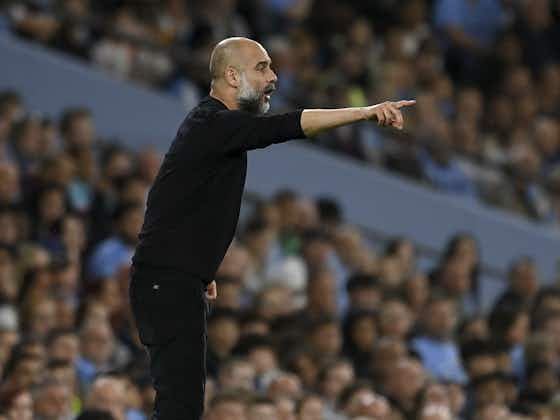EPL Index
·1 June 2024
Banter and Bias: The Bald Premier League Manager Phenomenon

In partnership with
Yahoo sportsEPL Index
·1 June 2024

Football’s fascination with managers’ hair, or lack thereof, has sparked both humour and prejudice. Nick Miller from The Athletic delves into this curious topic, exploring the societal and psychological implications of baldness among top-flight football managers.
The infamous rivalry between Jose Mourinho and Pep Guardiola introduced a bizarre yet enduring narrative in football: hair, or rather, the lack of it. Mourinho’s jibe in 2014, “When you enjoy what you do, you don’t lose your hair, and Guardiola is bald. He doesn’t enjoy football,” set the stage for a decade-long meme culture branding Guardiola a ‘bald fraud’.
This dig resurfaced in 2019 when Guardiola acknowledged being labelled ‘Fraudiola’ by critics. Although he sidestepped the baldness aspect, the meme had already gained traction among fans, resurfacing every time Guardiola’s team fell short of expectations.
The recent appointments of Arne Slot at Liverpool and Enzo Maresca at Chelsea reignited the ‘bald manager’ discussion. Liverpool fans, known for their humour, reluctantly retired their bald jokes, previously aimed at Erik ten Hag and Guardiola, as their new manager joined the follically challenged ranks.
Slot and Ten Hag share more than just a lack of hair: both Dutchmen have Eredivisie titles under their belts. However, as Miller points out, their similarities end there. Ten Hag’s reserved demeanour contrasts sharply with Slot’s charisma, yet online banter reduces them to mere bald stereotypes.

Picture:IMAGO
Society’s obsession with hair as a symbol of beauty and virility extends beyond football. Dr Sue McHale, a senior lecturer in psychology at Sheffield Hallam University, explains, “Everything we read, from being a child, is about hair being associated with beauty and virility.” This cultural bias makes baldness synonymous with ageing and unattractiveness.
In football, where youth and athleticism are prized, baldness can be seen as a sign of decline. Losing hair can feel like losing part of one’s identity, with limited options to regain control. While some, like Antonio Conte, opt for hair restoration, others embrace their baldness.

Picture:IMAGO
What may seem like harmless banter often conceals deeper prejudices. Dr McHale argues, “I would be among the first to argue that it’s a form of prejudice.” Society’s focus on appearance, amplified by social media, exacerbates these biases, affecting how bald individuals, including football managers, are perceived.
Even footballers are not immune. Arturo Vidal’s critique of bald managers, particularly Ten Hag, reveals underlying biases. Vidal, managed by the bald Jorge Sampaoli at Flamengo, implied baldness equated to poor management. Such comments, though perhaps influenced by personal grudges, reflect broader societal attitudes.
Despite the stigma, many bald managers have thrived. Guardiola’s six Premier League titles, along with the successes of Sean Dyche and Tony Pulis, demonstrate that hair has little to do with managerial acumen. Bald managers have also claimed 10 Champions League titles since 2000, underscoring their capabilities.
Slot’s appointment at Liverpool means the north-west Premier League teams are now managed exclusively by bald men: Slot, Ten Hag, Guardiola, and Dyche. Among the ‘big six’ clubs, four managers are bald, leaving Mikel Arteta and Ange Postecoglou as the minority with hair.
While the jokes may persist, Slot and Maresca are likely unfazed. Their success hinges on their tactical prowess, not their hair. As Alan Smith, former Crystal Palace manager, noted, “I always took it that it was meant in a good-natured way.”
In football, as in life, it’s crucial to look beyond appearances. Baldness does not define a manager’s ability, and the focus should remain on their skills and achievements. As Miller’s article in The Athletic highlights, societal attitudes towards baldness reveal more about our biases than the capabilities of those without hair.






























































